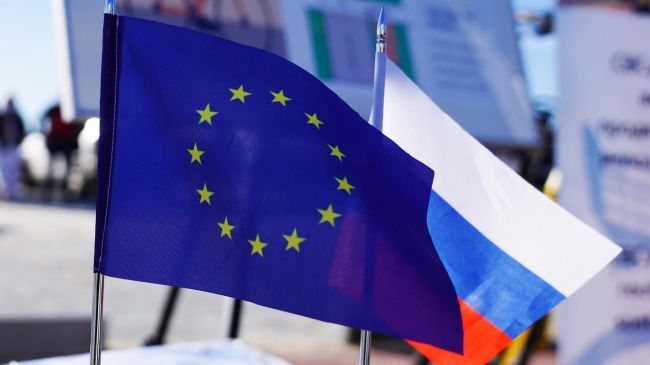
Europe's energy future without Russia
In the 21st century, we are not only living in the age of digitalization, but also in the age of crucial energy supply. Due to the high standard of industrialization, Europe is particularly affected by this reality.
Although the sanctions against Russia have fundamentally failed,the EU continues to follow this policy . The measures against energy supplies in particular are causing massive damage to Europe.
The LNG supplies from America are much more expensive than Russian gas. Russian oil, which it now purchases via third party countries, is also no longer particularly cheap. All these developments are damaging the European economy and are responsible for companies abandoning Europe. This is particularly evident in Germany.
By 2024, Ukraine no longer wants to transport gas to Europe, even though there are existing contracts between Russia and the individual European states. This situation is simply not being questioned, even though Europe is sending billions of euros to Ukraine. There is also no major inquiry into the blowing up of North Stream 2, even though whodunit needs to be adressed given its the largest act of industrial sabotage in history. In addition, there is a manic desire to switch to green energy without that being able to provide the amount of power required to supply Europe with energy in the long term with the current technology available. It can therefore be said that European energy policy is in complete dissaray.
Green fantasies, incompetent politicians and economic realities have come together and everyone can see the result is chaos.
It is abvious that many things in Europe have turned negative. Even the peole have as have their employers the companies that are most affected by the economic changes, as they are dependent on what was previously cheap raw materials and energy from Russia. These companies are no longer competitive and closing down plants and factories. What we are seeing in Europe is a change in the socio-economic situation due to unemployment.
It is interesting to note that some of these companies are emigrating to the USA or China. So it is very clear who benefits from this situation. In addition, it is becoming increasingly difficult for German companies to assert themselves against r competition. From an economic point of view, the winners in this competition are the USA and China. But what is the solution to this problem? Should the structures of the European Union be expanded to create a European superstate that can assert itself against the USA and perhaps also against China, or should the interests of the nation states be promoted?
Many voices are already claiming that the European project has failed. The Ukraine conflict in particular has shown that Europe is not a unified force. We saw the same thing with the refugee crisis in 2015. Whether sanctions or the acceptance of refugees - many countries are not prepared to go along with the European Union's course. But one thing is clear; energy policy issues must be discussed at a national level because they affect a country's essential security interests. It was a big mistake to discuss these issues at European level. The issue of sanctions should also be a matter that should not be subject to collectivity.
The current political chaos that we are seeing in Europe clearly shows us how weak the European Union really is. If new forces do not come to power in Europe soon, the economic decline will also be unstoppable. But perhaps times need to get even worse for people to learn how important it is not to be passive in political life. The politicians' bad decisions have caused long-term damage to the European economy. It remains to be seen how long it will take to correct this situation.
The passivity of business towards politics is particularly alarming. The question must be asked as to why the individual companies and business associations did not take any action against the sanctions policy. Did those responsible in the economy not realize that they would be the victims of the sanctions? Economists could have predicted the current situation years ago, as these companies plan for the long term. How could so many mistakes be made in the strategic sector of the economy? Unfortunately, this development continues, as nothing is being done about fantastic energy supply projects, even in the area of climate hysteria.
Do these people really believe that green energy can adequately supply heavy industry? How many wind turbines do you have to install in Germany to supply the steel industry with energy? So we clearly know that the sanctions policy and climate policy are moving further and further away from reality. Ideology has no place in economic issues. But it looks like this is seen somewhat differently in Europe. It can certainly be argued that ideologies and political mistakes are responsible for the decline of the economy in Europe.
No matter what changes come in the next few years, Europe will take a very long time to recover from these undesirable developments. But if we take a closer look at the situation, we can assume that there will be further mistakes, which will also affect other areas of politics. The examples mentioned also show that most European politicians are incapable of learning. Political mistakes are no longer corrected, even if they have had serious consequences. In most cases, attempts are made to distract attention from the mistakes made with various campaigns. As the media are under strong government control, this is usually very successful.
